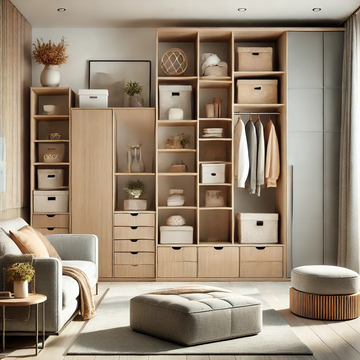Why Learning a Musical Instrument is So Rewarding
Let’s be honest—there’s something magical about playing a musical instrument. Whether it’s the strum of a guitar or the soothing notes of a piano, creating music is a joy like no other. It’s not just about making sounds; it’s about expressing yourself, relieving stress, and even boosting your brainpower. If you’ve ever dreamed of playing an instrument but didn’t know where to start, you’re in the right place.
That’s why we’ve put together this guide—to help you find the perfect instrument and get started on your musical journey. Whether you’re into rock, or classical, or just want to play your favourite tunes, we’ll guide you through the process. Ready to find your sound?
Factors to Consider When Choosing an Instrument
Before you rush out and buy the first instrument you see, there are a few things to think about. Choosing the right instrument can make all the difference in how much you enjoy learning and playing.
Personal Interest and Musical Taste
Think about the music you love. Are you drawn to the smooth sound of a saxophone or the energetic beat of drums? Your musical taste can be a great guide. If you love rock, a guitar might be the way to go. If jazz is more your thing, perhaps the trumpet or piano would suit you better. The key is to pick something that excites you.
Physical Considerations
- Age and Size: Some instruments are better suited to certain body types or ages. For example, smaller hands might struggle with a full-sized guitar, but a ukulele could be just right. Kids might start with a junior drum kit or a keyboard with smaller keys.
- Accessibility: If you’re looking for something easy to pick up and start playing, consider instruments that don’t require complex coordination, like the ukulele or keyboard.
Budget and Costs
- Initial Purchase Cost: Instruments vary widely in price. Guitars and keyboards can be relatively affordable, while pianos and drum sets might require a bigger investment. Think about your budget and consider starting with a less expensive option.
- Maintenance and Accessories: Don’t forget the ongoing costs—things like strings, reeds, or even tuning. Some instruments, like electric guitars, might also need amps or pedals, adding to the overall cost.
Space and Noise
If you live in a small space or share your home with others, consider the noise level of your chosen instrument. Drums are fantastic but can be loud, while digital keyboards often come with headphone jacks for quiet practice. Think about where you’ll be playing and how much space you have for your instrument.
Learning Curve
Some instruments are easier for beginners than others. The ukulele, for example, has fewer strings and simpler chords than a guitar, making it a popular choice for new musicians. On the other hand, the violin requires a lot of practice to get the right sound. Consider how much time and effort you’re willing to invest in learning.
Popular Instruments for Beginners
Let’s take a look at some of the most popular instruments for beginners. Each has its own charm and challenges, but all of them are great for getting started.
Guitar
- Acoustic vs. Electric: Acoustic guitars are great for beginners because they don’t require any extra equipment like amps. Electric guitars are fun, especially if you’re into rock or blues, but they might need a bit more setup.
- Basic Techniques to Learn First: Start with basic chords and strumming patterns. Once you’ve got those down, you’ll be able to play along with many popular songs.
Piano/Keyboard
- Acoustic Piano vs. Digital Keyboard: Pianos offer a rich, full sound, but they’re big and expensive. Digital keyboards are more affordable, and portable, and often come with features like headphone jacks for quiet practice.
- Learning to Read Music: The layout of the keyboard makes it easier to learn to read music, and you can start playing simple tunes almost immediately.
Ukulele
- Portability and Ease of Learning: The ukulele is small, lightweight, and only has four strings, making it easier to learn than a guitar. It’s perfect for beginners who want something fun and portable.
- Basic Chords to Get Started: You can learn a few simple chords in a matter of minutes and start playing songs almost right away.
Drums/Percussion
- Drum Set vs. Practice Pad: A full drum set is exciting but can be loud and space-consuming. A practice pad is a quieter, smaller option to start learning rhythm and coordination.
- Rhythm and Coordination: Drums are all about rhythm. Start with basic exercises to develop your timing and coordination.
Violin
- Size and Fit: Violins come in different sizes, so it’s important to choose one that fits you well. A properly sized violin is crucial for developing good technique.
- Developing Proper Technique: Learning the correct posture and bowing technique is essential for getting a good sound from the violin.
Wind Instruments (Flute, Clarinet, Saxophone)
- Choosing the Right Instrument: Wind instruments like the flute, clarinet, and saxophone each have their unique sound and style. Consider the music you want to play and how comfortable you are with the instrument’s physical demands.
- Breathing Techniques: Mastering breath control and embouchure (the way you shape your mouth) is key to playing wind instruments.
Tips for Getting Started with Your Chosen Instrument
Now that you’ve chosen your instrument, how do you get started? Here are some tips to help you on your musical journey.
Finding the Right Teacher or Online Resources
Whether you prefer one-on-one lessons with a teacher or learning through online courses, having some guidance is invaluable. A good teacher can correct mistakes early on and help you progress faster. If you’re learning online, look for well-reviewed courses that match your learning style.
Setting Up a Practice Routine
Consistency is key when learning an instrument. Set aside regular practice time, even if it’s just 15 minutes a day. This will help you build your skills steadily without feeling overwhelmed.
Patience and Persistence
Learning an instrument takes time, and it’s normal to feel frustrated at times. Remember that everyone progresses at their own pace, and the most important thing is to keep going, even when it feels tough.
Joining a Community
Playing music with others or joining online forums can be incredibly motivating. You’ll learn faster, get valuable feedback, and maybe even make some new friends who share your passion for music.
Common Challenges and How to Overcome Them
Every beginner faces challenges, but with the right approach, you can overcome them and keep progressing.
Initial Frustration
It’s easy to get frustrated when things don’t go as smoothly as you’d like. Try to focus on small victories—like mastering a chord or learning a simple song. Celebrate these milestones to keep your motivation high.
Physical Discomfort
Some discomfort is normal when starting out, but it’s important to avoid strain or injury. Make sure you’re using the correct technique and take breaks when needed. If something doesn’t feel right, consider getting advice from a teacher or experienced player.
Staying Motivated
Setting small, achievable goals can help keep your interest alive. Whether it’s learning a new song or playing for friends and family, these goals will give you something to work towards and a sense of accomplishment when you achieve them.
Upgrading and Expanding Your Skills
As you become more confident with your instrument, you might start thinking about upgrading or trying something new.
When to Invest in a Better Instrument
If you find yourself outgrowing your beginner instrument, it might be time to upgrade. A higher-quality instrument can offer better sound, easier playability, and more features to explore.
Exploring Advanced Techniques
As your skills develop, challenge yourself with more complex pieces or techniques. This could mean learning fingerpicking on the guitar, improvising on the piano, or mastering vibrato on the violin.
Trying Out Other Instruments
Once you’ve mastered one instrument, why not try another? Many skills, like rhythm and music theory, transfer easily from one instrument to another, making it easier to pick up a second (or third!) instrument.
Ready to Start Your Musical Journey?
So, there you have it—a guide to choosing your first musical instrument and getting started on your musical journey. Whether you’ve always dreamed of playing the piano or you’ve just discovered a love for the ukulele, there’s no better time to start than now. Music is a lifelong gift that keeps on giving, and with the right instrument and a bit of practice, you’ll be making music in no time.




